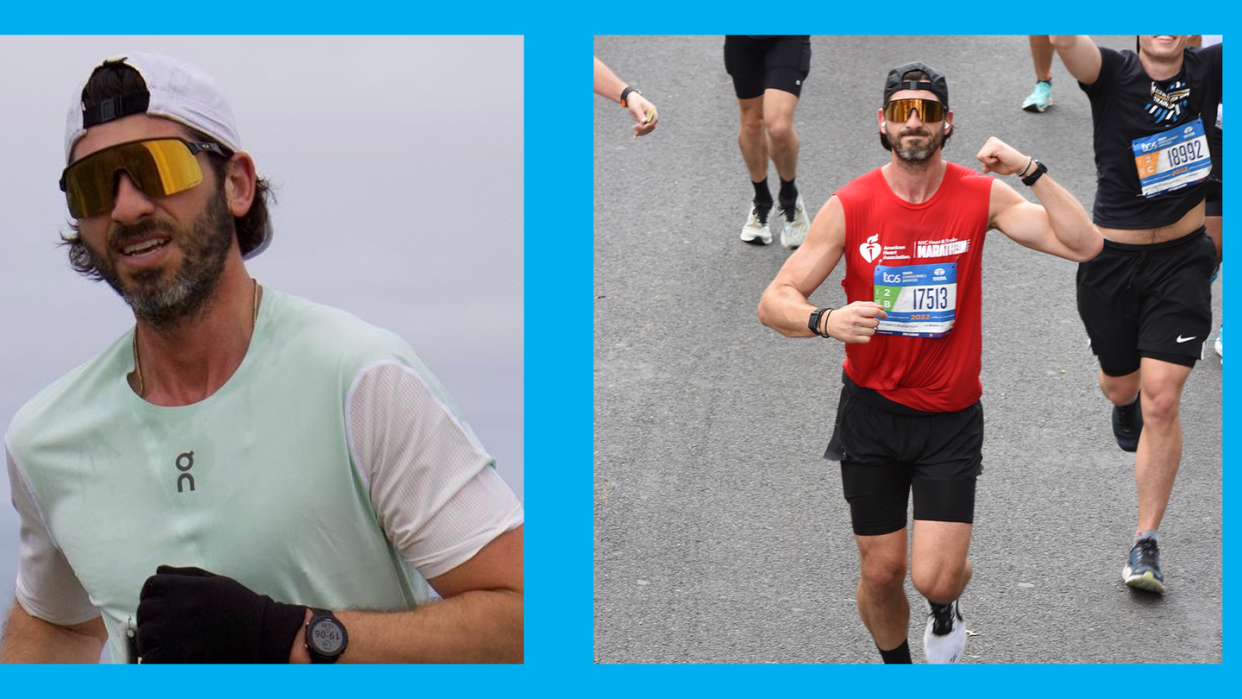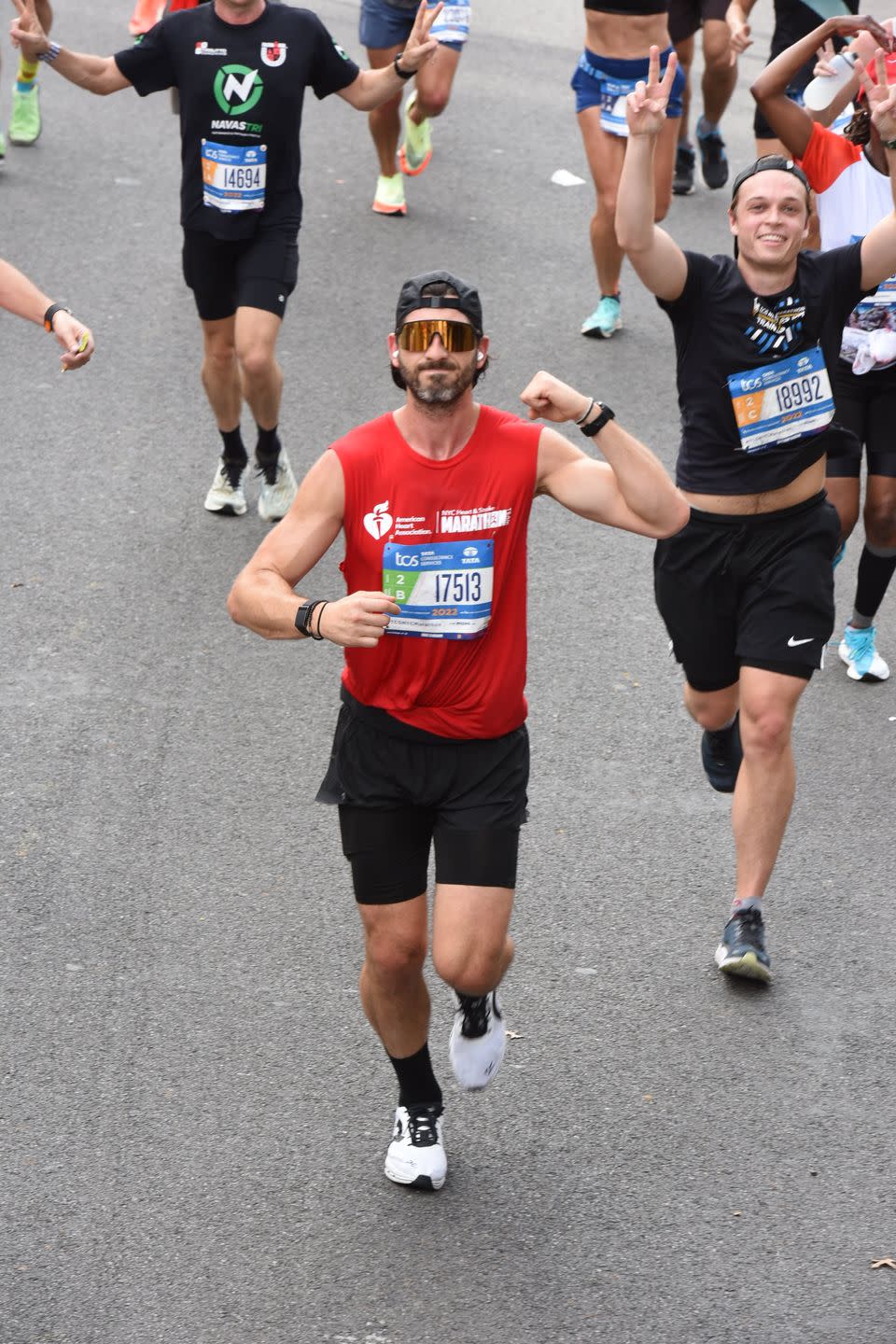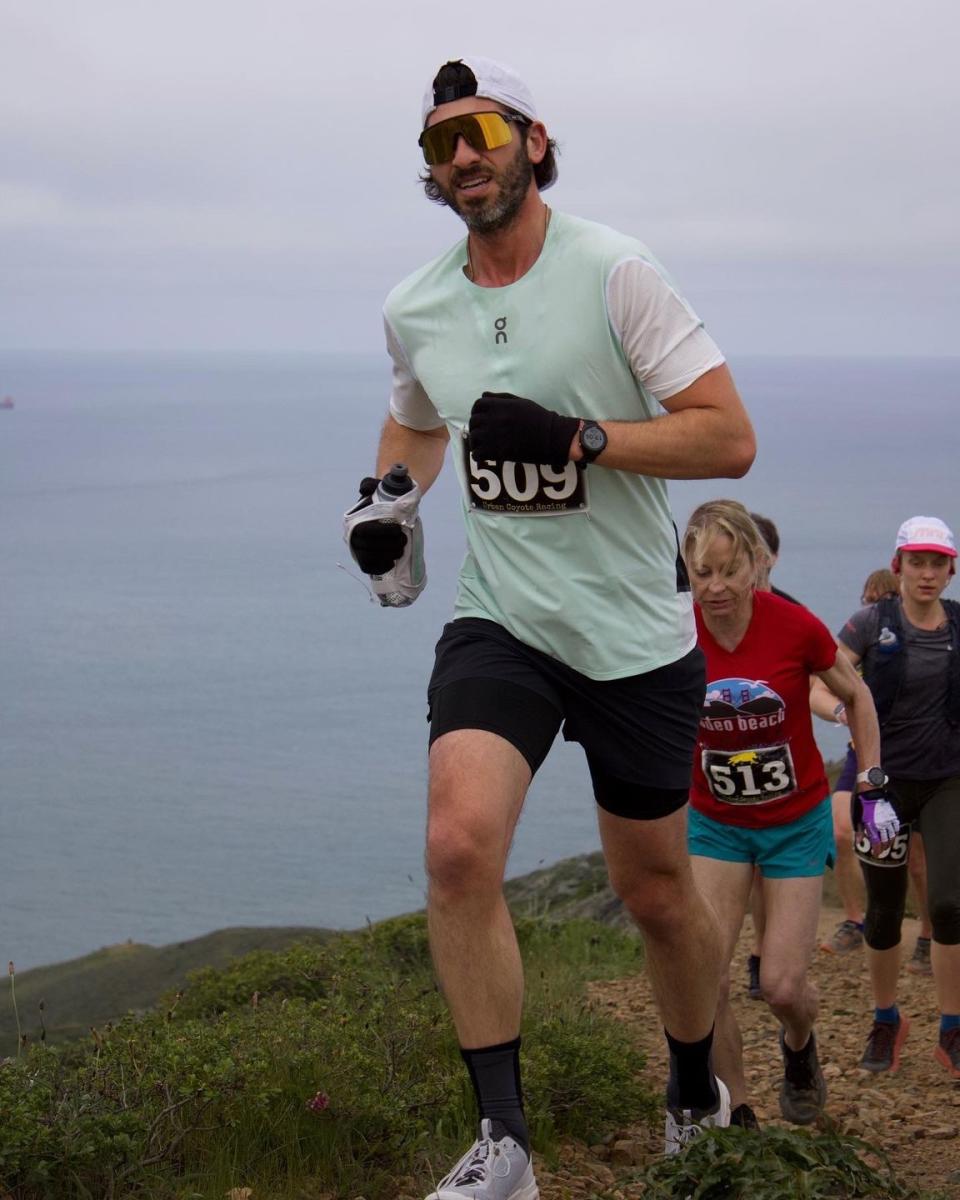How I Ran 3 Marathons After Having a Stroke at 35

This story is part of our ongoing “First Steps” series, where we share extraordinary stories of men who transformed their bodies, minds, and lives with a focus on the first steps it took them to get there (because, after all, nothing can change without a first step!). Read all of the stories here.
Below, 37-year-old Justin Cadelago shares, in his own words, how finding a passion for running after having a stroke transformed his outlook on life.
I HAD MY first open heart surgery when I was a week old. I was born with a congenital heart defect called coarctation of the bicuspid aortic valve (this makes my aorta narrower than it should be), which needed to be repaired. Doctors operated on me again when I was a toddler.
After that, other than regular check-ins with a cardiologist, I had a very normal, active childhood. I played a lot of sports. Later on, though, when I was 29 years old, I was told I would have to undergo another heart surgery to repair the aorta again. There had always been a chance I would have to have another operation, but luckily the procedure was successful. Because I was young and otherwise healthy, I was fortunate enough to make a speedy recovery. I went back to living my life, and didn't really think much else of it. At that age, I guess you think you're invincible.
Then came Thanksgiving 2021. The day started out totally normal, but as it was a holiday, I didn't go into work and I hadn't talked to anybody. I was alone in my apartment in New York City. It wasn't until I tried to call my dog over that I realized I couldn't say his name. I was unable to speak. It was probably the scariest day of my life; I still shake when I think about it.
"At 35, I thought my life was OVER."
I went straight to the hospital, and they knew immediately that I was having a stroke, specifically a transient ischaemic attack (TIA) that was possibly related to having several heart surgeries. Having a TIA is like a miniature earthquake: It's a sign that something bigger might be coming. So the doctors put you on tons of blood thinners and anticoagulants. That's frightening, because you have to be incredibly careful with everything you do: you can't go out there and ride a bicycle. If you get a paper cut, you start bleeding everywhere.
Sports had always been a huge outlet for me; I'd always played basketball, and had discovered a love of boxing. I was told immediately that I couldn't do that anymore, it was too dangerous. I fell into a depression. At 35, I thought my life was over.
Now it wasn't a matter of a want, but a need to have some physical activity in my life. I would ask my physicians about hiking or biking, and was told to just walk. But walking didn't help me manage the stress and anxiety I felt. I'd always hated running, but I begged my doctors to let me run. And they said, "Okay, try running a mile but at a very slow pace." So I did.
I was happy that I was able to break a sweat and start to feel like a normal person again. I did it again the next day, and the next day, slowly increasing my mileage until I was at three or four miles and felt that runner's high, which I'd never experienced before because in traditional sports training, running is a punishment.

As soon as I felt that, it was as if I'd tapped into something larger. The endorphins started to flow, and I began to have positive thoughts again instead of the negative ones that had been taking up so much of my headspace. The next time I went out for a run, I was chasing that feeling again. I would think about the other people I'd seen in the stroke ward, some of whom were completely immobile, and something clicked. Why was I feeling so angry? Instead, I started to feel lucky: I was on my way to recovery, and I'd discovered a new sport I loved. My mindset shifted from depression and fear to gratitude.
In order to continue pushing myself forward, I signed up for the Miami Half Marathon. It was midway through December 2021, just a month after the TIA, and I got a spot the following February. It gave me something to look forward to and train for every day. Movement became the most important thing in my life, and I reoriented everything around that. When I finished the Miami Half, I cried at the finish line because it was my greatest athletic achievement since high school basketball. I immediately signed up for the Los Angeles Marathon the next month.
I incorporated other changes into my lifestyle at the same time, with a focus on wellness. I switched to a plant-based diet, did breathwork every day, prioritized high-quality sleep, and practiced journaling and gratitude. There were still days when I'd wake up and feel anxious or depressed because those feelings don't go away overnight. But having running as that constant North Star helped. If I felt bad, I'd go for a run and know I'd feel better.
In November 2022, less than a year after my stroke, I ran the New York Marathon, and I'm proud to say I raised $10,000 for the American Heart Association.

Since then, I've moved back from New York to my home city of San Francisco and fell in love with trail running. It's such an incredible feeling being immersed in nature—almost spiritual. I'm also making sure that I don't lose my passion for running by overdoing it, or doing it for the wrong reasons, so I don't focus too much on my pace or time. I just want to wake up every day excited to go for another run.
I've started doing weight-training again, as well as a lot of mobility work and stretching. I might return to boxing some time in the future. But right now I'm loving running in the mountains, and I always have a race or a challenge in my calendar.
Running has changed my life, and allowed me to process the traumatic experience of my stroke. Instead of being afraid of getting sick again, I'm now able to reframe that memory and how I think about my life, and let that perspective and gratitude continue to motivate me.
You Might Also Like